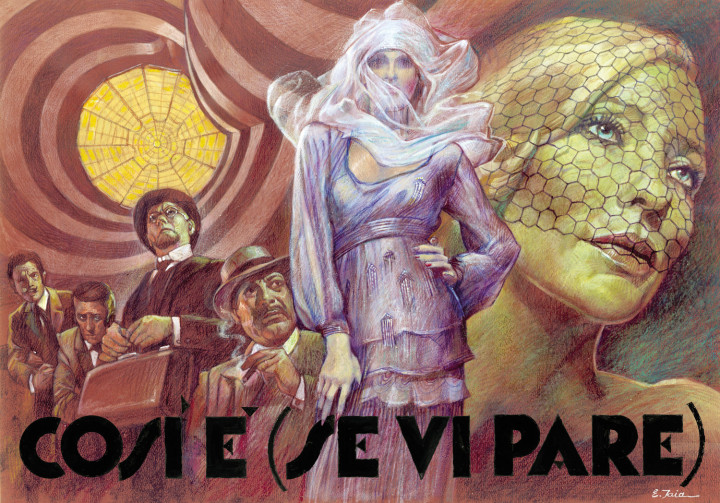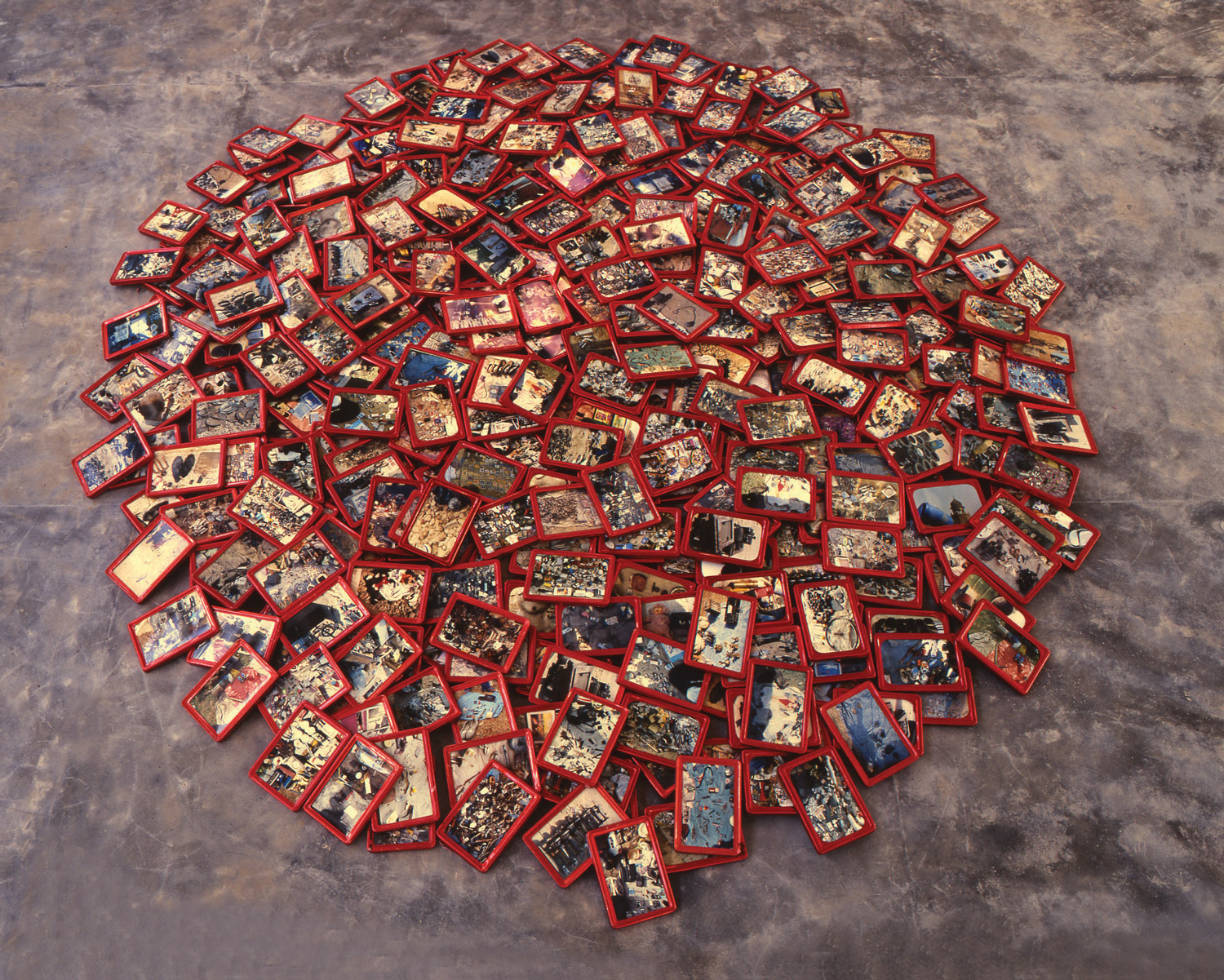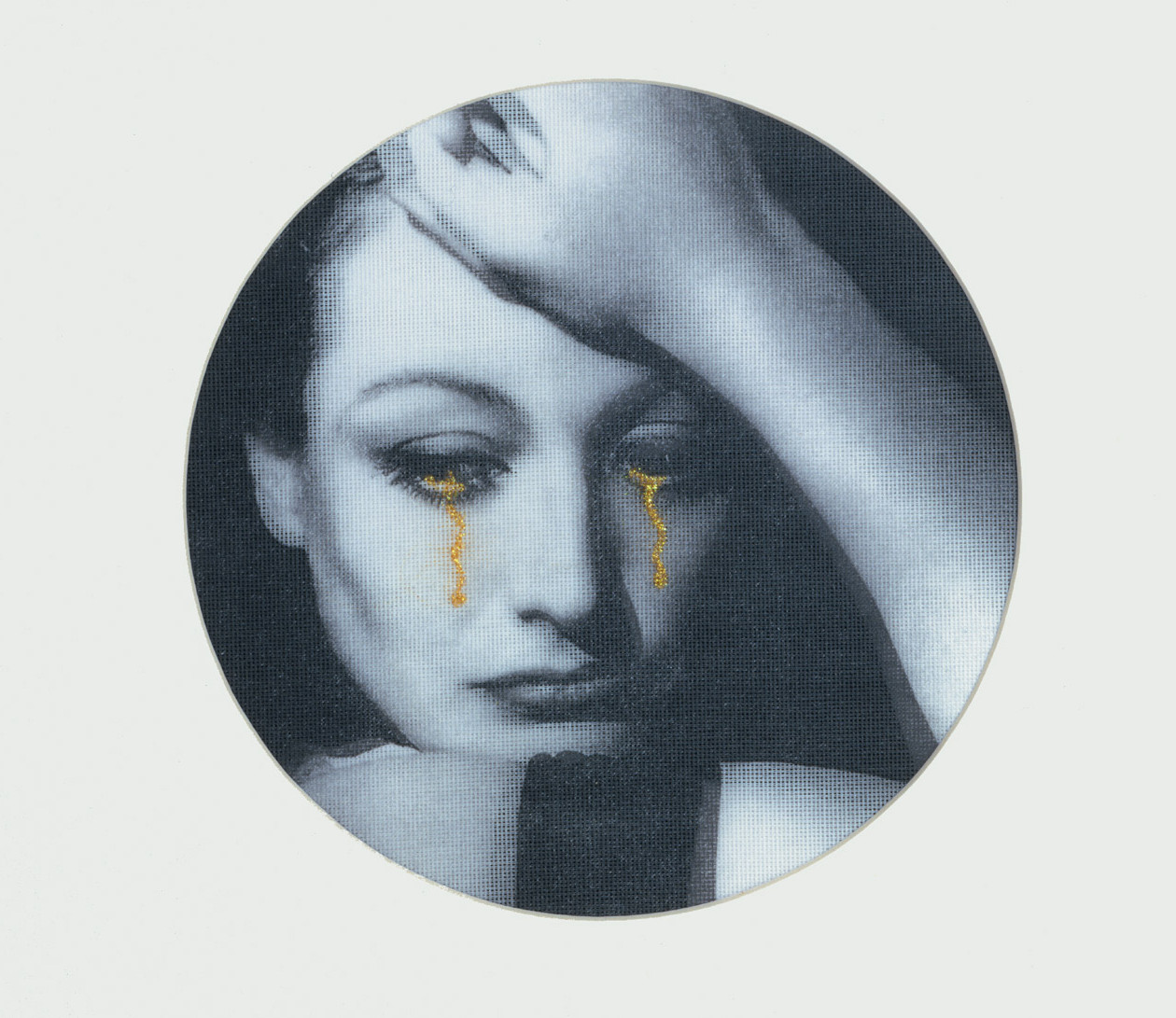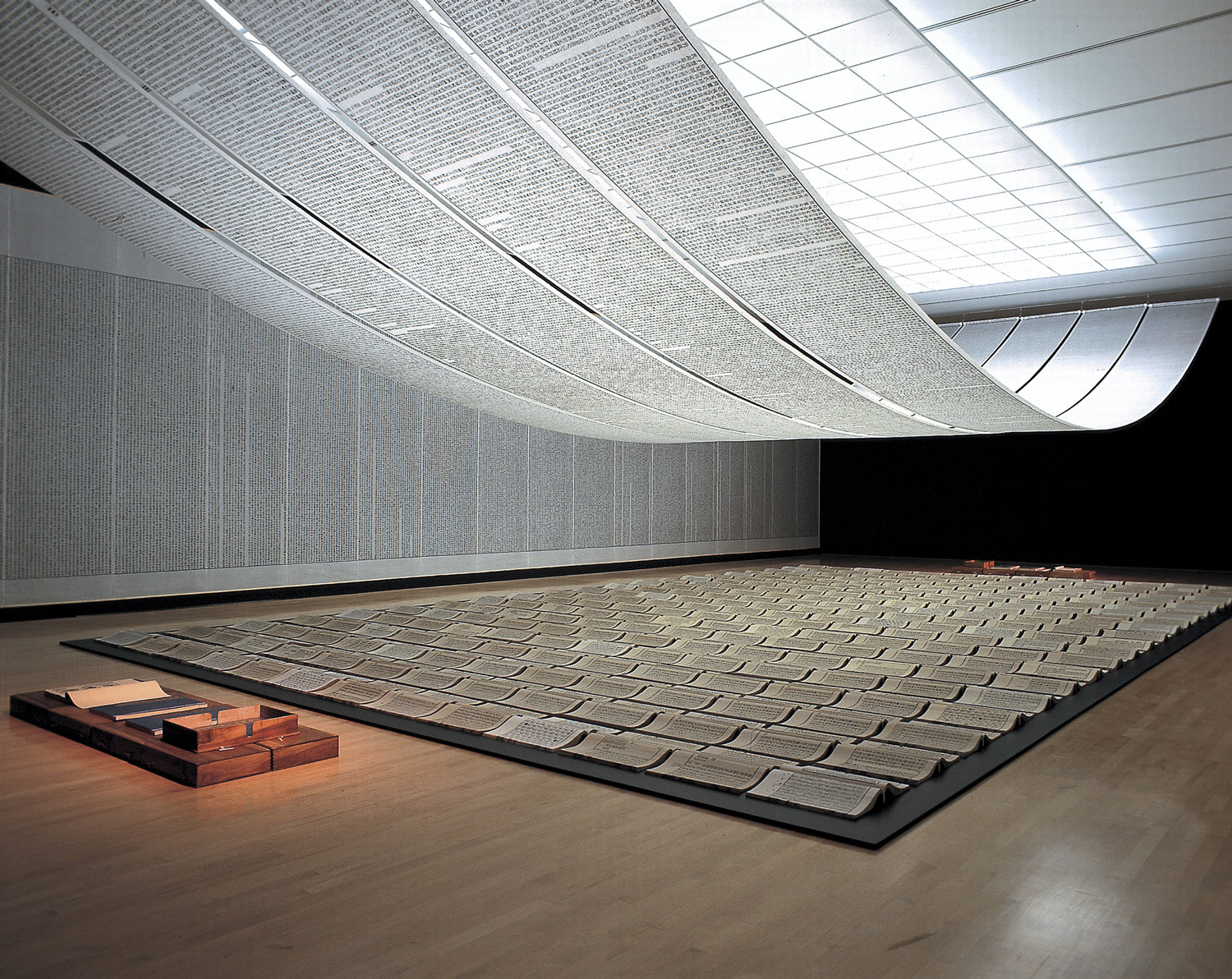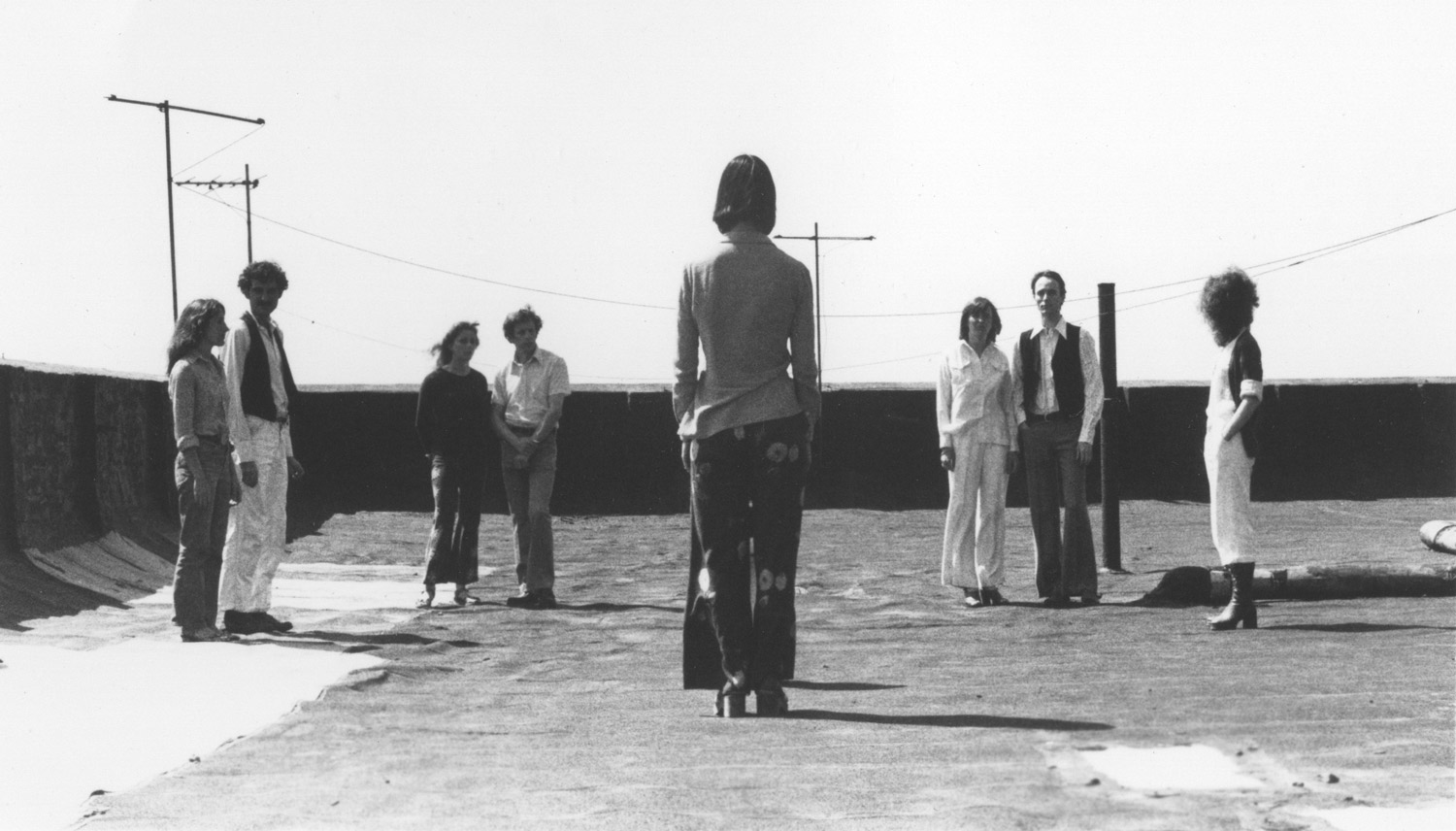
Amongst the artists who participated in this year’s Performa, Francesco Vezzoli created his first live performance entitled Right You Are (If You Think You Are), a remake of the famous play by Nobel Prize Laureate Luigi Pirandello, which premiered at the Solomon R. Guggenheim Museum in New York, last October 27, 2007. Hollywood stars such as Cate Blanchett and Natalie Portman, Ellen Burstyn, Peter Sarsgaard, David Strathairn, Elaine Stritch and Dianne Wiest composed the cast of this event.
Helena Kontova: Christian Dior, Cate Blanchett, Miuccia Prada, Natalie Portman, Larry Gagosian, il Guggenheim: is this a quotation of Bret Easton Ellis? What happens when American Psycho meets Pirandello?
Francesco Vezzoli: If Pirandello were alive today, maybe he would write American Psycho himself…
HK: Do you feel closer to the mentality of the characters in American Psycho or to the existential issues in Pirandello’s work?
FV: To paraphrase Flaubert, I would say, “I am la signora Ponza…” I am often asked if I personally locate myself on the critical or dialectical side of my work with respect to ‘Celebrity culture…’ And like the heroine of Pirandello’s play, Right You Are (If You Think You Are) [Così è (se vi pare)], I would like to respond: “I am the one you believe me to be…” Joking aside, I think the world of glamour and also the general debate in the arts are both suffering from a virulent schizophrenia… I try to reflect that in the most faithful way possible.
HK: Aside from Trailer for a Remake of Gore Vidal’s Caligula (2005), the trailer of a film that was never made, communication has become the preferred medium of your ‘media games.’ Look at Democrazy (2007) and Right You Are (If You Think You Are), which was recently presented at New York’s Guggenheim Museum. And among the public participants the likes of Uma Thurman and Brooke Shields could be found. Everything was accompanied by a very elaborate announcement, which winked at Art Nouveau.
Is Vezzoli still the marketing manager of the “Francesco Vezzoli Show?”
FV: For the pilot of a reality show that will never air, we turned to a Roman television production company. For the trailer of a film that never existed, I contacted a production company from Hollywood to construct an electoral campaign. For non-existent presidential candidates, I availed myself of Bush’s and Clinton’s consultants in Washington. For the opening night of a theatrical spectacle that never existed, I hired an event organizer from New York. Each time the ‘ephemeral ghost’ of a marketing manager changes, but I hope the product always remains surreal…
HK: In 1917, on the occasion of the first presentation of Right You Are (If You Think You Are) at the Olympia in Milan, Pirandello wrote to his sister: “It has truly been a great success. Not for the applause, but for the astonishment, the bafflement, the exasperation and the dismay I caused the audience. You don’t know how much I enjoyed it!”
Did you write that or did Pirandello?
FV: I selected this sentence to introduce the project on the evening’s program. Pirandello wrote it, but I could have written it myself. Especially when, during the piece, I looked into the monitor of the camera and saw the faces of the audience…

HK: Eight years after the first run of Right You Are (If You Think You Are), Pirandello presented it again, changing practically all the lines. If you had to present your version again, what would you change?
FV: I would never do it again as a live performance; it would be impossible to recreate the same effect of estrangement in the public as well as the actors.
HK: Could you reveal to me why Cate Blanchett and Natalie Portman participated in a live performance by Francesco Vezzoli at the Guggenheim Museum? By virtue of your ability to seduce or the originality of your project? And how do you get so close to such otherwise inaccessible people? What are your means?
FV: I contact them in various ways and I try to convince them by writing letters of sincere admiration and sending them the most excessive bouquets of flowers. Nobody will believe it, but I really wouldn’t be able to say why they accept. Perhaps they are so used to always receiving the same kind of work proposals that to try something different, even if only for one day, might seem like a really stimulating opportunity. But this is only my hypothesis…
HK: From the time you worked with Veruschka to working with Nathalie Portman, what has changed in your way of seeing celebrities?
FV: I ask celebrities to participate in my works because I believe their presence to be indispensable to portraying my way of seeing reality. My way of relating to them hasn’t changed over the years.
HK: From has-been celebrities to the hottest and most desired star of Hollywood. Do you think these people are the models of our time?
FV: More than models, I would say that they are a reflex of our time. Celebrities are capable of creating hysteria, morbid curiosity and the desire to emulate even in the most intellectually secure people. I cannot express the full extent of my gratitude to the actors who accept my invitation to participate in my game: without their complicity, creating the short circuit that amuses me so much would be really impossible.
HK: With your work at the Guggenheim in New York last October, you put together a real, live mega-performance, a kind of Herculean labor, I believe. After having carried out this project, how has the perception of your work changed?
FV: In the beginning I was referred to as reactionary and nostalgic… Now they have defined me as a ‘bad boy.’ This seems to me to already be a good piece of progress.
HK: Would you like it if Paris Hilton participated in one of your upcoming projects? For example, in a ballet?
FV: Sincerely, I am not sure how I could use Paris Hilton. I get the feeling that she doesn’t really need me; her life is already a veritable work of art.

HK: When conceiving a work, is your point of departure an author or an actor, an idea, a hunch, or a tip you might casually receive?
FV: I always seek to channel my rage and disgust for certain aspects of reality into my projects. This is where my initial impetus comes from.
HK: How do you establish your cast? Alone or with the aid of friends or collaborators?
FV: Long before I do my projects, I like to discuss them, including my choices regarding cast, with different people and gauge their reactions. I think that a large part of my most recent works consist in testing the audience in the most diverse ways… I like interacting with the public and I would like to eventually explore this aspect of my work more in the future.
HK: Some people among the audience become part of the work: are such choices strategic or is there an element of chance involved?
FV: I would define it as a strategic chance… or rather, I invite all the people I dream of having participate, and then hope that the dream comes true… but sometimes it can also become a nightmare.
HK: Pirandello’s piece, on which your performance was based, is an invitation to switch roles. The author, the actors, the public. How do you situate yourself among these roles? Where do you feel most comfortable?
FV: I don’t see myself as a film or theater director. I wouldn’t even know where to begin to read a film script or how to construct a storyboard. I like to think of myself as a mad producer and megalomaniac producer.
HK: What is your favorite reality show?
FV: Wife Swap, the Italian version, not the American one.
HK: You render celebrities controversial and portray them in sometimes pathetic ways. Has anyone ever tried to prevent the circulation of your work?
FV: An American actor, who participated in Trailer for a Remake of Gore Vidal’s Caligula accepted to have the project in the Venice Biennial, but then afterwards asked, with his lawyers, to have himself cut out.
HK: How did you convince Sharon Stone to participate in Democrazy?
According to your experience, what relationship do stars have with the contemporary art?
FV: Fortunately, Sharon Stone found the challenge really interesting from the beginning… The real problem with Hollywood stars is working with agents and publicists who do not always understand the nature of my projects. Over the last few years, I think Hollywood has been viewing art with a growing interest, but the road is still long. The day actors insist on being in my work and not vice-versa, maybe I’ll start to search elsewhere.

